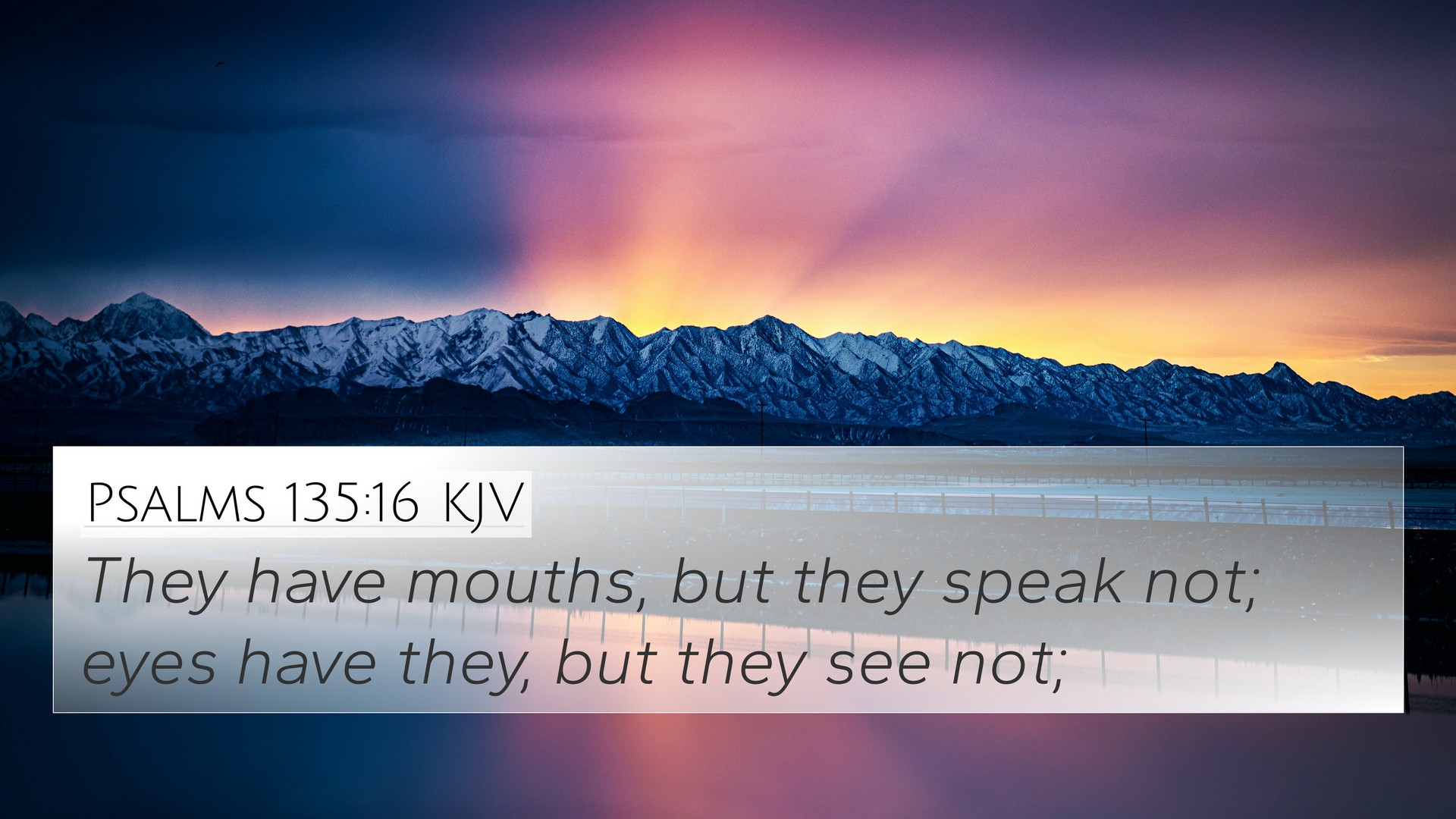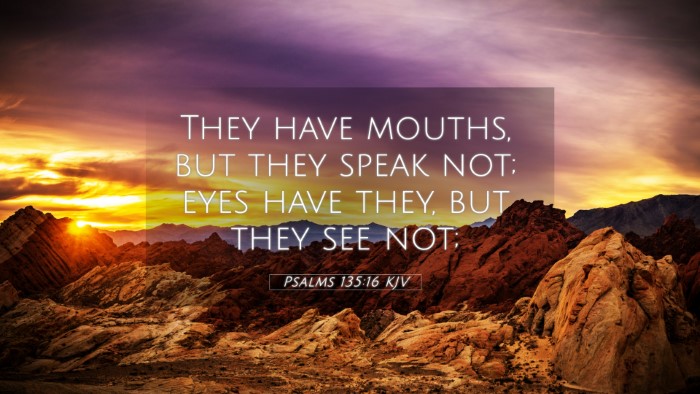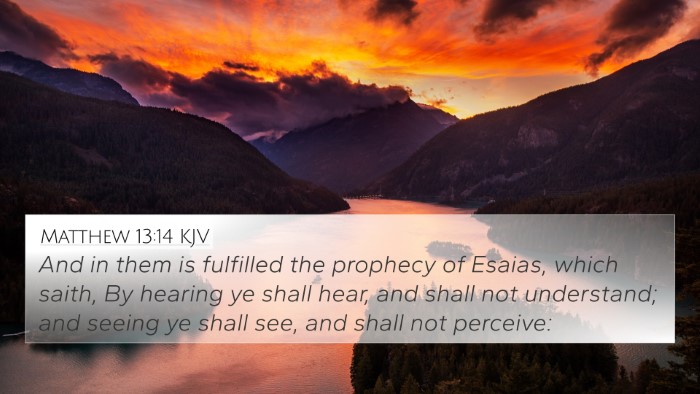Psalms 135:16 - Summary and Interpretation
Bible Verse: Psalms 135:16
Verse Text: "They have mouths, but they do not speak; eyes they have, but they do not see."
Overview of Psalms 135:16
This verse is a part of a larger passage that emphasizes the superiority of God over idols. In this psalm, the author contrasts the living God with the lifeless idols crafted by human hands, highlighting their inability to respond or engage with humanity.
Key Themes
- Idolatry vs. Divine Sovereignty: The verse underscores the impotence of idols in contrast to the all-powerful Creator.
- The Nature of Idols: The imagery of mouths and eyes serves to illustrate the hollowness and futility of worshiping created objects.
- Spiritual Understanding: The inability of idols to see or speak symbolizes the spiritual blindness and deafness of those who depend on them.
Commentary Insights
Matthew Henry: Henry emphasizes the foolishness of idol worship, noting that these lifeless representations can provide neither guidance nor response. True worship belongs solely to the living God who is always present and aware.
Albert Barnes: Barnes expounds on the idea of God's sovereignty, arguing that the impotence of idols demonstrates God's unmatched power and wisdom. He encourages believers to recognize the futility of relying on man-made objects rather than divine promise.
Adam Clarke: Clarke draws attention to the deeper meaning of spiritual sight and hearing. He suggests that worshiping idols not only misdirects devotion but also blinds the heart from recognizing the true God, thus impeding genuine relationship with Him.
Related Bible Cross-References
To fully appreciate the implications of Psalms 135:16, we explore its connections with several other scriptures:
- Psalms 115:5-7: "They have mouths, but do not speak; eyes, but do not see..." This verse reiterates the same theme of idol impotence.
- Isaiah 44:9-20: This passage critiques idol-makers and emphasizes the absurdity of worshiping the created over the Creator.
- Jeremiah 10:5: "...they are like scarecrows in a cucumber field, and cannot speak; they must be carried, for they cannot walk." This highlights the burdensome nature of idols.
- 1 Corinthians 8:4: "We know that an idol is nothing at all in the world and that there is no God but one." A decisive statement on the reality of idol worship.
- Exodus 20:4: "You shall not make for yourself a carved image..." This command prevents the influence of idolatry among God's people.
- Acts 17:29: "Being then God's offspring, we ought not to think that the divine being is like gold or silver or stone, an image formed by the art and imagination of man." A reminder of God's true nature.
- Romans 1:23: "And exchanged the glory of the immortal God for images resembling mortal man and birds and animals and creeping things." This illustrates the consequences of idolatry.
Further Reflections
Understanding Psalms 135:16 invites us to engage in a deeper exploration of how idols manifest in contemporary life, encouraging self-reflection on what we might unknowingly elevate above God.
Cross-referencing Bible verses like this strengthens our comprehension of scripture by highlighting thematic connections among different texts. As we study these references, we can develop a more holistic understanding of God’s message throughout the Bible.
Tools for Better Understanding
Utilizing a Bible concordance or a cross-reference guide can enhance your study experience. Here are some suggested methods to apply:
- Check Cross-Referencing Systems: Explore tools designed to find connections between verses systematically.
- Digital Study Aids: Utilize Bible apps that enable quick access to cross-reference tools and thematic studies.
- Group Studies: Engage in community discussions about identified connections and themes for deeper understanding.
Conclusion
The message of Psalms 135:16 serves as a timeless warning against the emptiness of idolatry. By exploring related verses and employing various study tools, believers are encouraged to deepen their relationship with the Lord, who not only speaks and sees but also loves and saves.
Incorporating the insights found in public domain commentaries further enriches our understanding and emphasizes the importance of recognizing the profound implications of worshiping the living God over man-made idols.




